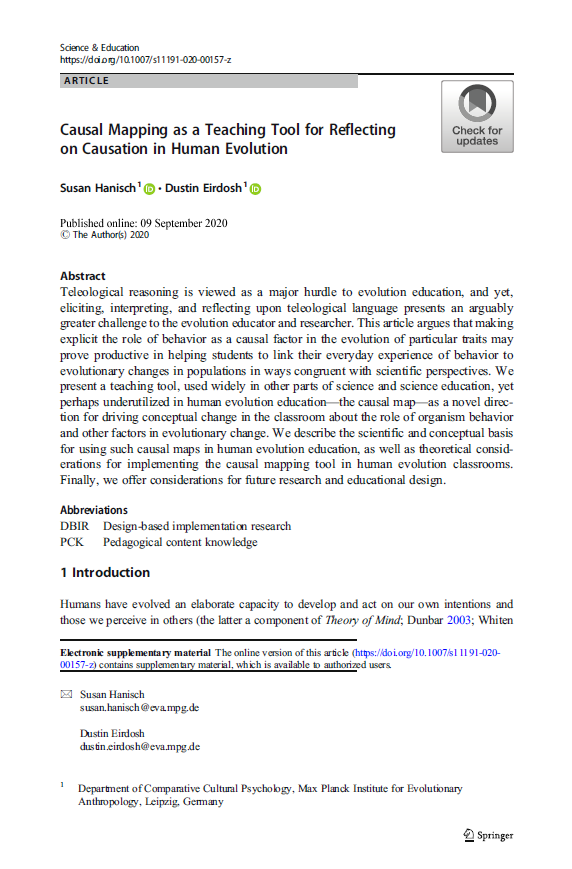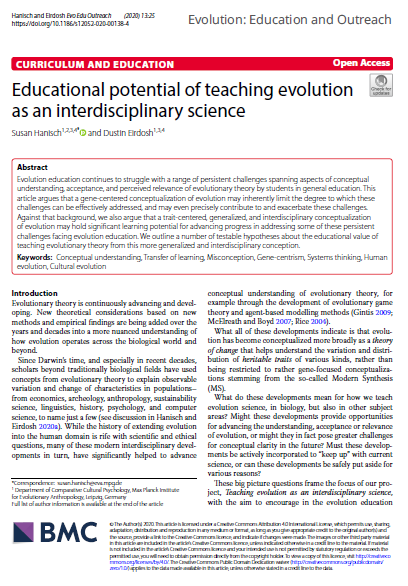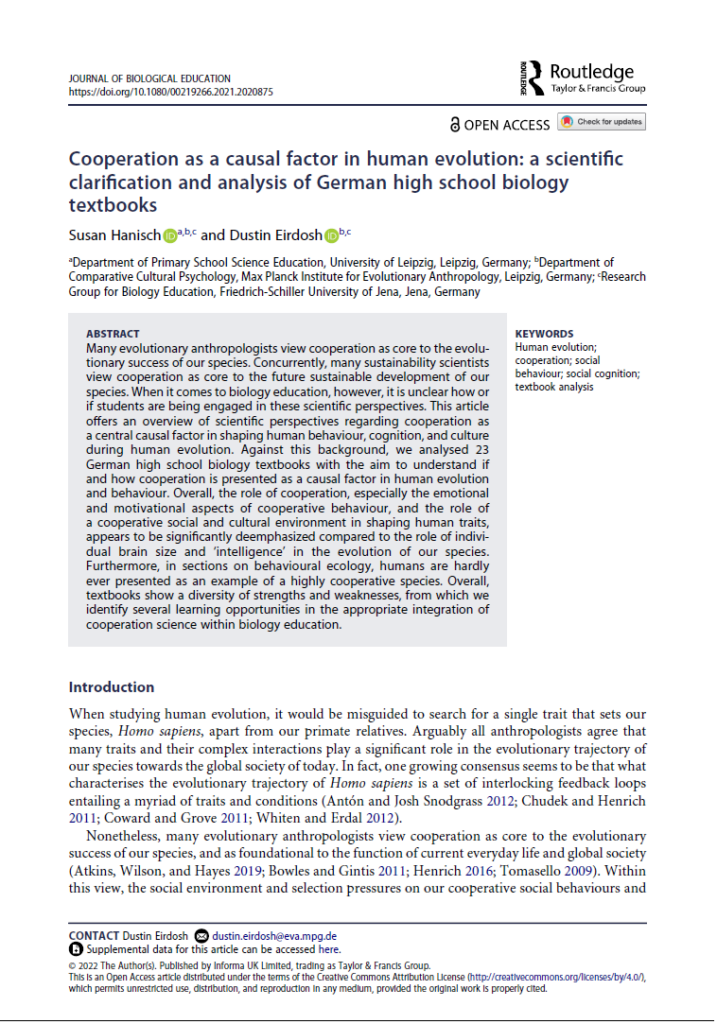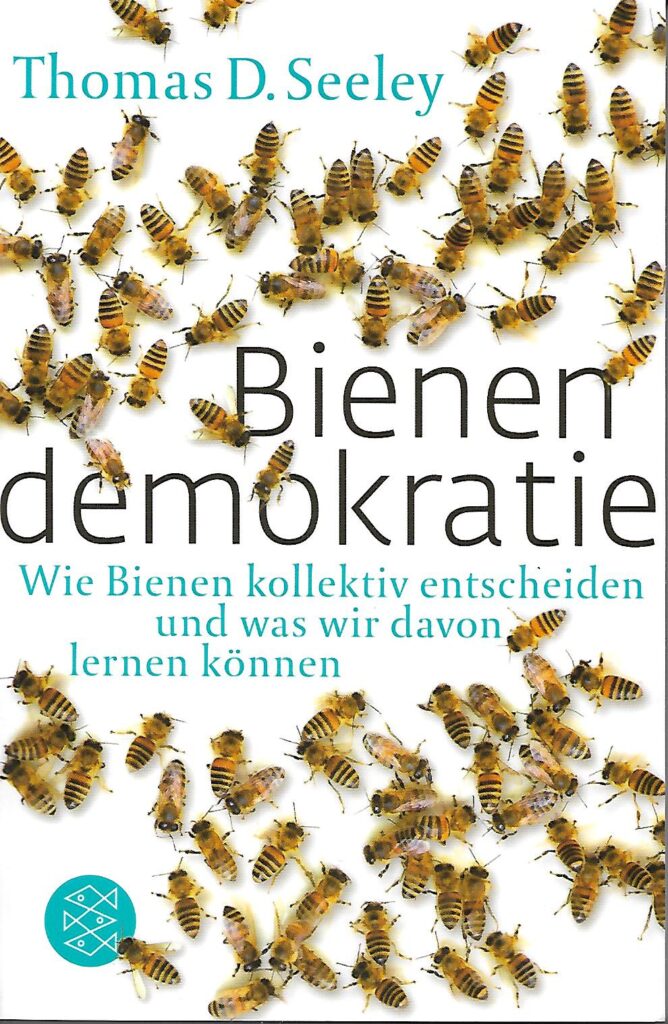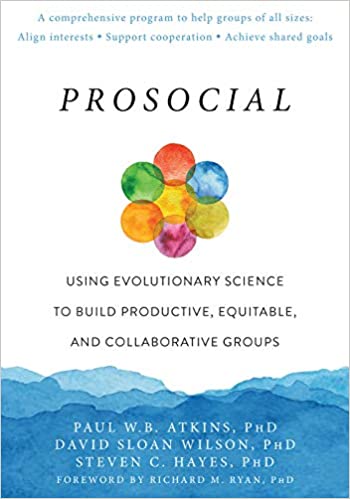Hanisch, S. & Eirdosh, D. (2020). Causal mapping as a teaching tool for reflecting on causation in human evolution. Science & Education. https://doi.org/10.1007/s11191-020-00157-z
We present a teaching tool, used widely in other parts of science and science education, yet perhaps underutilized in human evolution education—the causal map—as a novel direction for driving conceptual change in the classroom about the role of organism behavior and other factors in evolutionary change. We describe the scientific and conceptual basis for using such causal maps in human evolution education, as well as theoretical considerations for implementing the causal mapping tool in human evolution classrooms.

